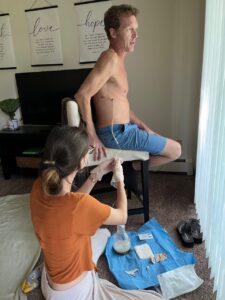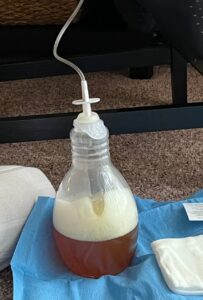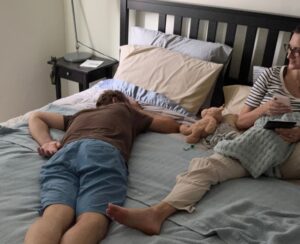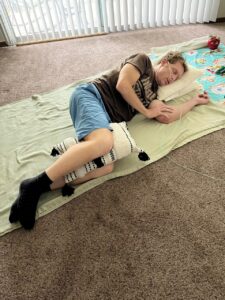 One of the best things about the Mayo Clinic is the constant communication between doctors, nurses, and other medical personnel. They also communicate faithfully with us. Every patient can set up a portal on their phone that allows them to ask questions, arrange or rearrange appointments, and view test results literally minutes after the tests conclude.
One of the best things about the Mayo Clinic is the constant communication between doctors, nurses, and other medical personnel. They also communicate faithfully with us. Every patient can set up a portal on their phone that allows them to ask questions, arrange or rearrange appointments, and view test results literally minutes after the tests conclude.
Today’s appointment at the Clinic was the result of a question Ann Sophie had texted to the head oncology doctor. We’ve been concerned about the swelling in Nelson’s left arm/hand, and in both feet/ankles, and thought it was important that a doctor see him and make a judgment.
This afternoon we met with Dr. Oliver and his PA. Because of the frequent back-and-forth between them, both were well aware of the reason for our visit. They were current on everything that had happened to Nelson while he was in the hospital recently and in the days since then.
The three of us asked countless questions, and the bottom line of Nelson’s swollen limbs is that the cancer is causing fluid to build up not just in his lungs but throughout his body. When I asked if it would help to surgically remove the small mass in his neck, the doctor said, “We can’t do that because it’s not just that mass that’s causing trouble. The cancer is all over.”
We knew it had been growing but didn’t know how extensively. Just as we were absorbing that negative news, Dr. Oliver dropped a bomb on us. He said, “When I visited you in the hospital about a week ago, I took one look at you and thought, ‘This young man is dying. He won’t make it to the end of the week’.”
We were speechless. We had had no idea.
Dr. Oliver told us this, we believe, to encourage us, because he also said, “You were a very sick man. And now, a week later, here you are, looking a little better.”
All of us sat still, hearts beating fast, wondering what else he might know that he wasn’t telling us.
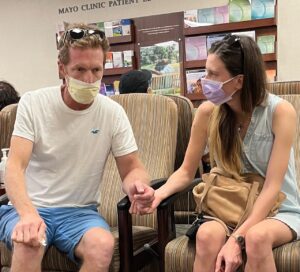 Later we talked about whether or not hearing the whole medical truth is good or bad. Would it have been helpful for Dr. Oliver to have come into Nelson’s hospital room telling him he thought he wouldn’t live through the week?
Later we talked about whether or not hearing the whole medical truth is good or bad. Would it have been helpful for Dr. Oliver to have come into Nelson’s hospital room telling him he thought he wouldn’t live through the week?
We concluded that it’s best if we don’t know everything the doctors know. They aren’t really in charge anyway.
God is.
As we arrived home this afternoon, we recalled the prayer we’d prayed over Nelson on the day Dr. Olivier judged him to be at the end of his life. Here’s part of our prayer over him that night, personalized just as we prayed it then:
“Let the morning bring Nelson word of your unfailing love, Lord, for he has put his trust in you. Show him the way he should go, because he has entrusted his life to you. Rescue him from this cancer, because he hides himself in you. For your name’s sake, O Lord, preserve his life.”
And God did.
(Psalm 143:8-11)


